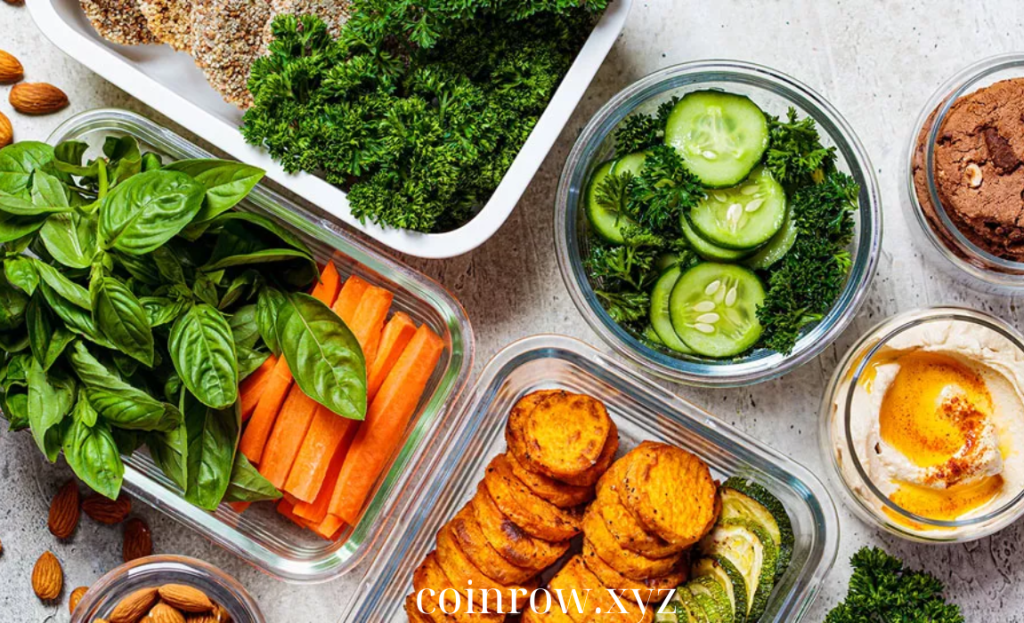Tips and Tricks
Beginner’s Guide to Meal Prep: Tips for Starting Strong
Meal prepping is an excellent way to save time, reduce stress, and ensure you’re eating healthy, balanced meals throughout the week. Whether you’re looking to save money, eat more nutritious food, or streamline your cooking routine, meal prep is a strategy that can help. For beginners, getting started with meal prep may seem overwhelming, but with the right plan and approach, you can make it a simple and effective part of your weekly routine.
This guide provides practical tips to help beginners start meal prepping strong and establish healthy habits that last.
1. Start Small and Simple
As a beginner, it’s important to start with a manageable plan. Trying to meal prep every single meal for an entire week right away can be overwhelming. Instead, focus on prepping just a few meals or snacks to ease into the process.
Key Tips:
- Choose 1 or 2 Meals to Prep: Start by prepping meals for either lunch or dinner throughout the week. This allows you to get comfortable with the process without feeling like you’re taking on too much.
- Stick to Simple Recipes: Begin with easy, straightforward recipes that don’t require too many ingredients or complicated techniques. Simple meals like grain bowls, salads, or stir-fries are great starting points.
- Use What You Know: Prep meals you already know how to cook and enjoy eating. This familiarity will make the process more enjoyable and reduce the learning curve.
2. Plan Your Meals Ahead
Effective meal prep starts with good planning. Taking the time to plan your meals in advance helps you stay organized, saves you time at the grocery store, and ensures you have everything you need for the week.
Key Tips:
- Create a Weekly Meal Plan: Decide what you want to eat for the week and write out a menu. Aim for balanced meals that include proteins, healthy fats, whole grains, and vegetables.
- Choose Versatile Ingredients: Opt for ingredients that can be used in multiple meals, like roasted vegetables or quinoa, which can be mixed into different dishes throughout the week.
- Consider Your Schedule: Plan meals that fit your week. For busy days, prep quick, easy meals you can grab and go, while for slower days, you can prepare dishes that take more time to assemble.
3. Invest in Quality Containers
Investing in the right containers is crucial for successful meal prepping. Proper storage keeps your food fresh, organized, and easy to grab when you’re ready to eat.
Key Tips:
- Use Airtight Containers: Purchase containers that are airtight and leak-proof to keep your meals fresh. Glass containers are ideal as they are durable, microwave-safe, and environmentally friendly.
- Get Containers with Dividers: If you prefer your foods separated, containers with dividers can help you portion out different components of your meal without mixing them.
- Label Your Meals: Use labels to write the meal name and date you prepared it. This helps you keep track of freshness and ensures nothing goes to waste.
4. Batch Cook and Portion Your Meals
Batch cooking allows you to prepare larger quantities of food at once, which you can portion out into meals for the entire week. This saves time and ensures you always have a ready-made meal.
Key Tips:
- Cook in Bulk: Prepare large batches of versatile items like grains, proteins, and roasted vegetables that can be easily mixed and matched into different meals. For example, a big batch of quinoa can be used in grain bowls, salads, or as a side dish.
- Pre-Portion Meals: After cooking, divide your meals into individual portions right away. This makes it easy to grab a pre-packed meal when you’re hungry, preventing the temptation to order takeout or snack on less healthy options.
- Freeze for Later: If you’ve prepped more meals than you can eat in a week, freeze some for later. Soups, stews, and casseroles freeze particularly well.
5. Keep It Balanced and Nutritious
When meal prepping, it’s essential to focus on creating balanced meals that provide the nutrients you need to feel your best. Each meal should include a source of protein, healthy fats, carbohydrates, and plenty of vegetables.
Key Tips:
- Include Protein in Every Meal: Protein helps you stay full and energized. Choose plant-based proteins like beans, lentils, tofu, or animal proteins like chicken, turkey, or fish.
- Incorporate Healthy Fats: Include fats like avocado, olive oil, nuts, and seeds to promote satiety and support overall health.
- Add Fiber-Rich Vegetables: Fill half your plate with vegetables to boost fiber intake and get a variety of vitamins and minerals. Broccoli, spinach, carrots, and bell peppers are great options.
- Use Whole Grains: Choose whole grains like quinoa, brown rice, and whole wheat pasta for slow-releasing energy and extra nutrients.
6. Maximize Your Time in the Kitchen
One of the main goals of meal prepping is to save time throughout the week. To get the most out of your meal prep session, use time-saving strategies to make cooking more efficient.
Key Tips:
- Multitask While Cooking: Cook multiple items at once to save time. For example, you can roast vegetables in the oven while cooking grains and proteins on the stovetop.
- Use Time-Saving Tools: Invest in kitchen tools that speed up prep, like a food processor for chopping veggies, a slow cooker for hands-off cooking, or an Instant Pot for quick meals.
- Prep Ingredients in Advance: If you’re not ready to fully cook meals, spend some time prepping ingredients like chopping vegetables or marinating proteins, so cooking later in the week is faster and easier.
7. Add Variety to Keep It Interesting
Meal prep doesn’t have to be boring or repetitive. Incorporating a variety of flavors, cuisines, and ingredients can keep your meals exciting, making it more likely that you’ll stick to the habit long-term.
Key Tips:
- Use Different Flavors: Mix up your seasonings and sauces to create variety even if you’re using the same base ingredients. For example, quinoa can be dressed with a lemon-tahini sauce for one meal and used in a Mexican-inspired bowl with salsa for another.
- Explore Different Cuisines: Incorporate different cuisines into your meal prep, such as Mediterranean, Asian, or Mexican-inspired dishes, to keep your meals fresh and flavorful.
- Try New Recipes: Experiment with one or two new recipes each week to introduce variety while maintaining some of your favorite go-to meals.
8. Stay Organized and Consistent
Consistency is key to successful meal prep. Creating a routine and staying organized will make meal prep easier over time and ensure that it becomes a regular part of your schedule.
Key Tips:
- Pick a Prep Day: Choose one or two days a week to dedicate to meal prep. Many people prefer Sundays to get ready for the workweek, but choose whatever works best for you.
- Organize Your Fridge and Pantry: Keep your kitchen organized so you can easily access ingredients and prepared meals. Label and date your meals, and keep frequently used items in easy-to-reach spots.
- Stick to a Routine: Make meal prepping a consistent part of your weekly routine. The more you do it, the easier and quicker it becomes.
Conclusion: Start Your Meal Prep Journey Strong
Starting with meal prep may feel daunting, but by starting small, staying organized, and focusing on simple, nutritious meals, you can turn meal prepping into an enjoyable and efficient habit. It will not only save you time and reduce stress, but it will also help you stay on track with your health goals. With these beginner-friendly tips, you’ll be well on your way to mastering meal prep and creating delicious, balanced meals every week.

